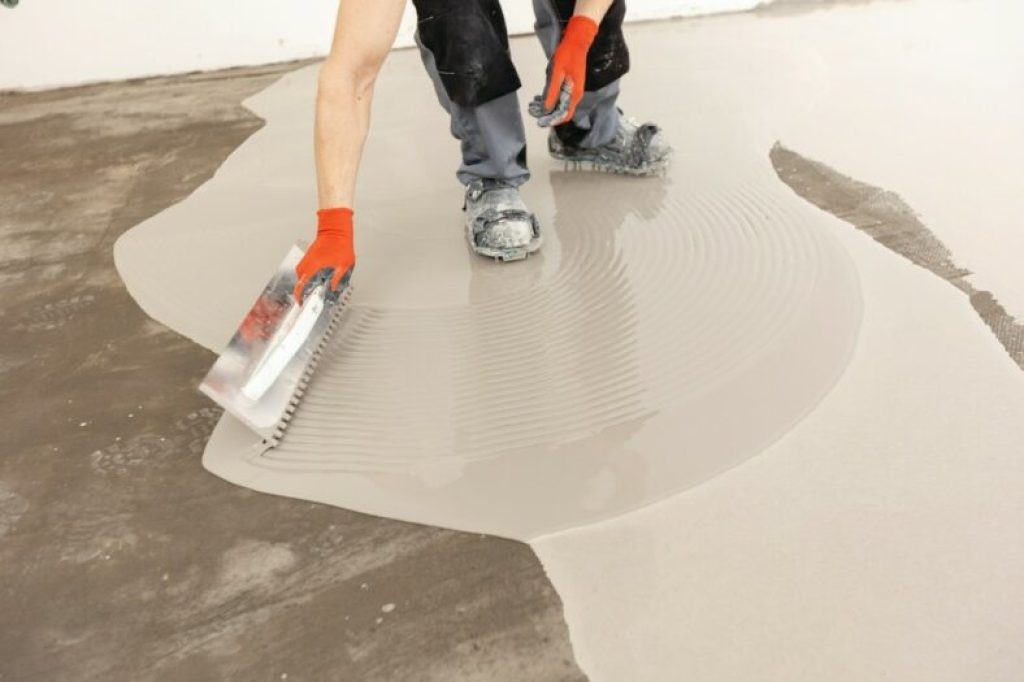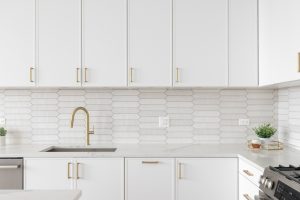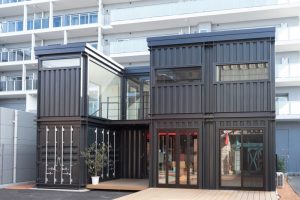Garage Floor Coatings Compared
Have you ever walked into your friend’s garage to check out their car and exclaimed “Wow, this is a nice garage!” Well, chances are, the aesthetics of the garage go beyond just colors, style and decoration. They likely had their garage floor coated as well.
Related Topics (Sponsored Ads):
Exterior Ad Block Content
Exterior Ad Block Content
Exterior Ad Block Content
Exterior Ad Block Content
Garage floor coatings are an essential part of maintaining and protecting your garage floor. They serve as a protective layer that enhances the appearance of your garage, provides durability and resistance to various factors such as stains, chemicals, and wear and tear. Whether you use your garage for parking your vehicles, as a workspace, or as an additional storage area, investing in a high-quality garage floor coating can make a significant difference in the beauty, longevity and functionality of your garage floor. This will also increase the value of your home if you choose to put it up on the market at some point in the future.
As Master Miagi said “Wax on, wax off.” In the article below, we will explore some of the best garage floor coatings available on the market, along with their features, advantages and suitability for different needs.

Epoxy Coatings
Epoxy coatings are one of the most popular choices for garage floors, due to their exceptional durability and longevity. They are made by mixing epoxy resin with a hardening agent, resulting in a thick and strong coating that bonds well to concrete surfaces. These coatings are resistant to chemicals, stains, and abrasion, making them an excellent choice for high-traffic areas.
Advantages: Epoxy coatings provide a seamless and smooth surface, making it easy to clean and maintain. They are available in a variety of colors and finishes, allowing you to customize the look of your garage floor. They also have excellent adhesion properties, ensuring that the coating will not peel or chip easily. Additionally, they can improve the brightness of your garage by reflecting light.
Disadvantages: One of the main drawbacks of epoxy coatings is that they can be challenging to apply. The preparation process involves thorough cleaning and etching of the concrete surface, as well as mixing and applying the epoxy resin and hardener in the correct proportions. It is often recommended to hire a professional for proper installation. Epoxy coatings are also prone to yellowing when exposed to UV rays, so they may not be suitable for outdoor garages or areas with excessive sunlight exposure.
Polyaspartic Coatings
This is a type of two-component coating that provides a high-gloss finish and excellent protection for garage floors. Polyaspartic coatings have superior resistance to UV rays, chemicals, stains, and abrasion.
Advantages: The fast curing time of polyaspartic coatings allows for quick installation and minimal disruption to your daily routine. They provide a glossy and smooth finish that enhances the overall appearance of your garage. Polyaspartic coatings are highly resistant to UV rays, ensuring that they will not yellow or degrade over time. They are also easy to clean and maintain.
Disadvantages: Polyaspartic coatings can be more expensive than other garage floor coatings. The application process requires professional expertise and specialized equipment. They also have limited color options compared to epoxy coatings.
Concrete Stains
Concrete stains are a popular choice for homeowners who prefer a more natural and rustic look for their garage floors. They penetrate the concrete surface, creating a translucent and variegated appearance that enhances the natural beauty of the concrete.
Advantages: Concrete stains offer a wide range of colors and finishes, allowing you to achieve a unique and personalized look for your garage floor. They are relatively easy to apply and can be customized to create various patterns and designs. Concrete stains also provide excellent resistance to UV rays, making them suitable for outdoor garages or areas with excessive sunlight exposure.
Disadvantages: Concrete stains do not provide the same level of protection and durability as epoxy, polyurea, or polyaspartic coatings. They are more prone to wear and may require periodic reapplication. Concrete stains also require proper surface preparation to ensure good penetration and adhesion.
Rubber Floor Tiles
Rubber floor tiles are a versatile and easy-to-install option for garage floor coatings. They are typically made from recycled rubber and provide excellent shock absorption and insulation properties. Rubber floor tiles are available in various colors and patterns, allowing for customization and creative designs.
Advantages: Rubber floor tiles are easy to install and can be easily removed or replaced if needed. They provide a comfortable and slip-resistant surface, making them suitable for areas where standing for long periods is required. Rubber floor tiles also offer excellent impact resistance and noise reduction.
Disadvantages: Rubber floor tiles may not provide the same level of protection and durability as epoxy, polyurea, or polyaspartic coatings. They are more prone to staining and may require periodic cleaning and maintenance. Rubber floor tiles can also be more expensive than other garage floor coatings.
Final Thoughts
Although garage floor coatings provide a dazzle and enhanced protection from stains, holes and other forms of damage, it’s still highly recommended to take caution when handling any extra heavy, permanently staining or super sharp objects while you’re standing on it. No coating is 100 percent impervious to damage.
Related Topics (Sponsored Ads):
Exterior Ad Block Content
Exterior Ad Block Content
Exterior Ad Block Content
Exterior Ad Block Content





